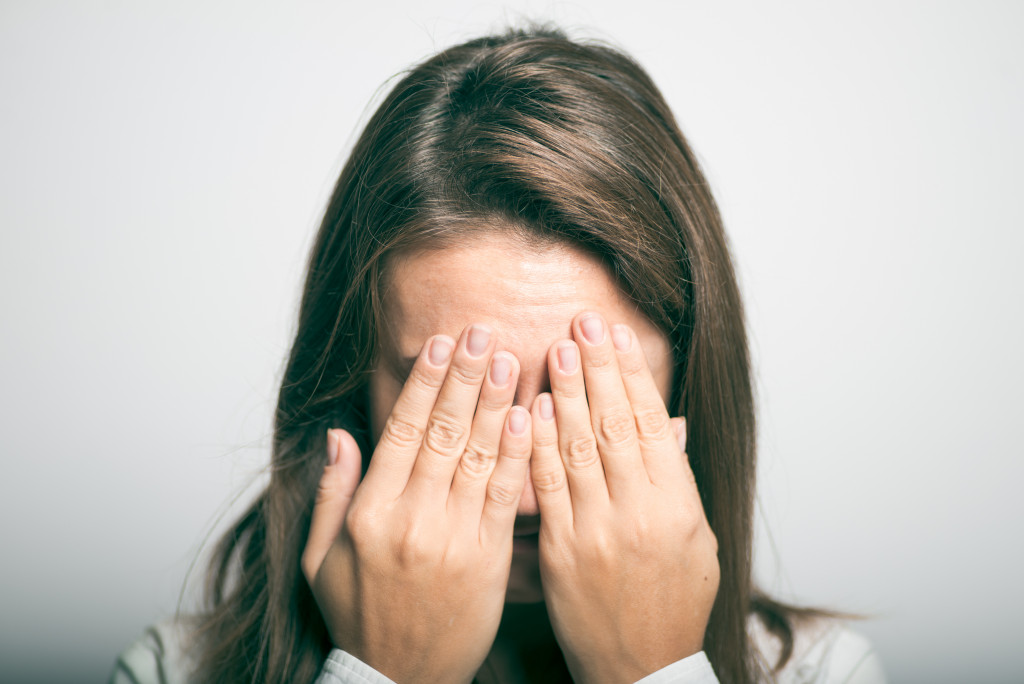Do you like a good scare? People often frequent creepy attractions or watch scary movies. For instance, many people look for haunted house attractions for Halloween or line up for the next horror flick in theaters. Naturally, we know that we jump and scream in these settings. But the question is: why do we do that?
People get a kick out of being scared. Watching horror movies allows us to get that same thrill in a controlled and safe environment. When we encounter something scary, a part of our brain called the amygdala alerts our entire nervous system. It leads to what we call an adrenaline rush.
But some people cannot feel fear. They have a unique condition called Urback-Wiethe disease. This ailment allows the patient to watch The Exorcist without feeling tense with what’s happening on screen. However, being scared about certain stimuli is a good thing. A good dose of fear helps us survive. Our brain prepares us for a fight-or-flight response.
Being scared is a natural reaction when we encounter something creepy. Sometimes, we become especially fearful of specific things. Here are a few examples:
Acrophobia
Acrophobia is the irrational fear of heights. Although feeling uneasy when you find yourself in high places is normal, excessive fear is no longer helpful. Allowing your fear to control you will stop you from enjoying your life or from (even) doing your job. The usual treatment for this affliction is exposure therapy. As the name suggests, the patient is exposed to what they are afraid of. It will be a slow process where the first step might be showing acrophobic pictures of someone in a tall building.
Another option for the acrophobic is Cognitive Behavioral Therapy (CBT). The psychiatrist may also prescribe medications to help control the panic attacks brought about by the fear of height.
Aquaphobia

People often make the mistake of thinking that this specific phobia is the same as hydrophobia. The former is the irrational fear of water, while the latter is actually a symptom of rabies. The sole cure for those suffering from hydrophobia is to have rabies treated.
Aquaphobia is often the result of a near-drowning incident during childhood. But there are cases where a patient developed such phobia because a family member suffered from mental illness. There are two common treatments for this phobia, namely: CBT and Exposure Therapy. The psychiatrist will eventually work with a clinically trained swimming instructor to help the patient get over their fear.
An aquaphobe can also practice yoga to combat their fears. Meditation and deep breathing can also help people overcome aquaphobia.
Claustrophobia
Claustrophobes have anxiety attacks when they are in a confined space. The level of an anxiety attack can vary from slightly nervous to an all-out panic attack. Sometimes this is accompanied by the feeling of being doomed.
Patients who have mild claustrophobia simply avoid being in confined places. On the other hand, those who have severe claustrophobia are reluctant to leave their homes.
Other than exposure therapy and CBT, psychiatrists incorporate virtual reality (VR) in their therapy sessions. They use computers to imitate tight spaces. If the panic attacks are severe, some psychiatrists will prescribe antidepressants.
Coulrophobia
This particular phobia is usually associated with children. But Stephen King’s It has disproved this theory. A lot of adults find clowns creepy and sometimes downright terrifying. Some researchers believed that the fear of clowns might have started with the serial killer John Wayne Gacy. Before his capture, John used to attend charitable events and kiddy parties as Pogo the Clown. Whether this hypothesis is true, the legend of the killer clown was born.
The most common treatment for coulrophobia is psychotherapy. The patient talks about their anxieties. If the severity of the condition warrants additional treatments, the therapist can introduce exposure therapy or CBT. In addition to psychotherapy, the therapist can include medicines. One of which is the Beta-blockers. This drug is used to treat high blood pressure. Taking such medication will regulate the patient’s heartbeat.
If the case is severe, the psychiatrist can prescribe sedatives. But this has to be taken under strict medical observation because it can lead to addiction. Fear is part of our body’s natural defense mechanism. The main concern here is whether we allow fear to control our lives. We should have complete command of ourselves.
There are natural ways to overcome our fears—may it be coulrophobia or glossophobia (or the fear of public speaking). We have to take a deep breath and practice meditation.
Of course, you can also ask for help from professionals. You can reach out to the American Psychiatric Association to find the nearest therapist.



